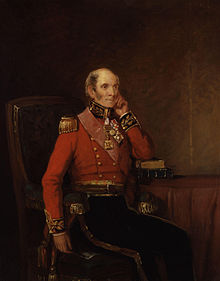The Earl of Strafford | |
|---|---|
 Portrait of John Byng by William Salter, 1834–1840 | |
| Born | 1772 Berkeley Square, London |
| Died | 3 June 1860 (aged 87 or 88) Grosvenor Square, London |
| Allegiance | |
| Service/ | |
| Years of service | 1793–1831 |
| Rank | Field Marshal |
| Commands | Grenadier Bn 3rd Regiment of Foot Guards 2nd Guards Brigade Northern District Commander-in-Chief, Ireland |
| Battles/wars | French Revolutionary Wars Irish Rebellion of 1798 Napoleonic Wars |
| Awards | Knight Grand Cross of the Order of the Bath Knight Grand Cross of the Royal Guelphic Order |

Field Marshal John Byng, 1st Earl of Strafford GCB, GCH, PC (Ire) (1772 – 3 June 1860) was a British Army officer and politician. After serving as a junior officer during the French Revolutionary Wars and Irish Rebellion of 1798, he became Commanding Officer of the Grenadier Battalion of the 3rd Regiment of Foot Guards during the disastrous Walcheren Campaign. He served as a brigade commander at the Battle of Vitoria and then at the Battle of Roncesvalles on 25 July 1813 when his brigade took the brunt of the French assault and held its position for three hours in the early morning before finally being forced back.
During the Hundred Days, he commanded the 2nd Guards Brigade at the Battle of Quatre Bras in June 1815 and again at the Battle of Waterloo later that month when light companies from his brigade played an important role in the defence of Château d'Hougoumont. He went on to be Commander-in-Chief, Ireland and, after leaving Ireland in 1831, he was elected as Whig Member of Parliament for Poole in Dorset and was one of the few military men who supported the Reform Bill, for which he was rewarded with a peerage.